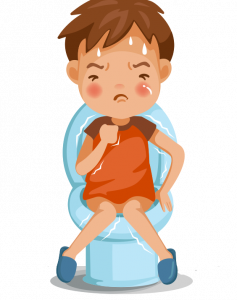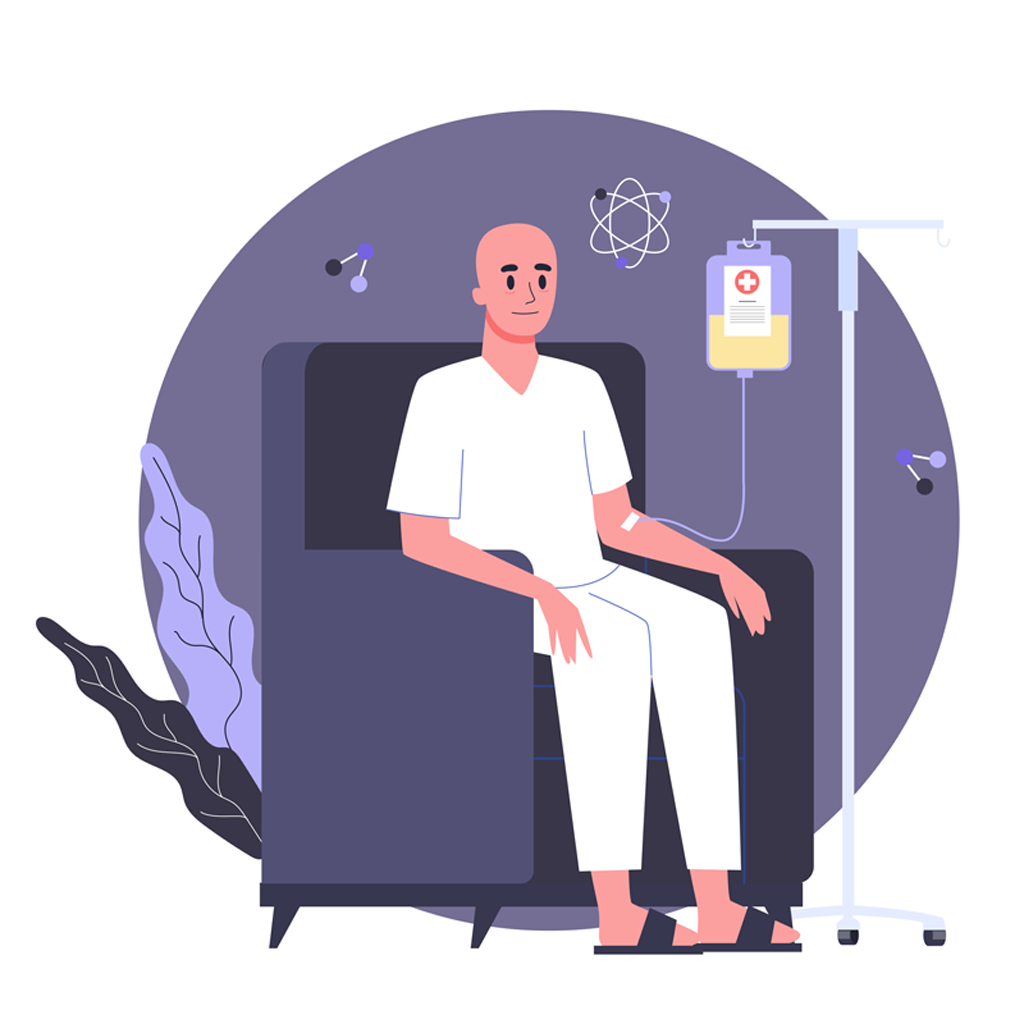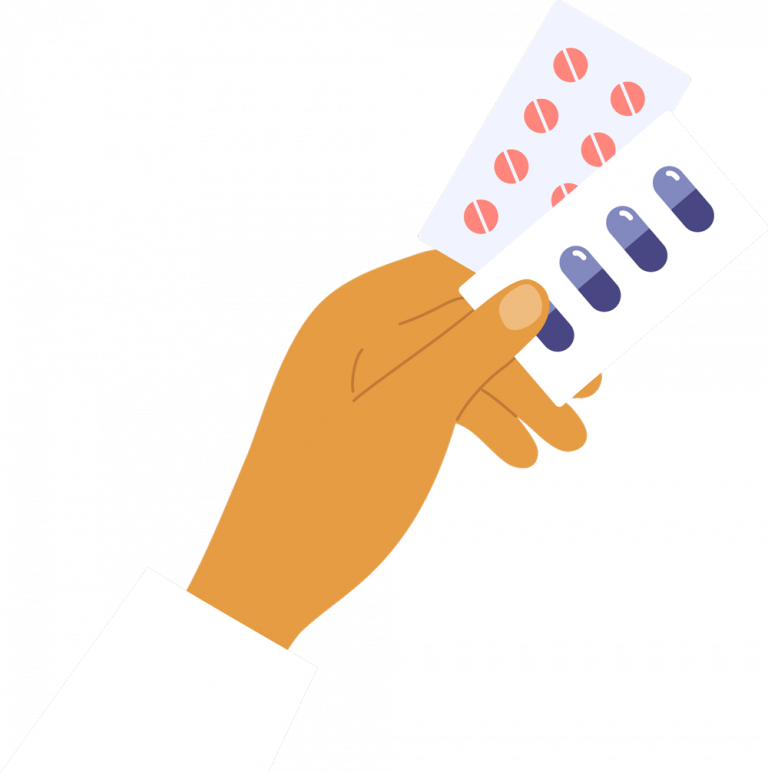Constipation
Constipation is a problem for many people and sometimes severely restricts their quality of life. Read here about who is affected, what kind of symptoms occur, as well as options for diagnosis and treatment.
Contents
What are the symptoms of constipation?
Although everyone has different bowel movement rhythms, constipation is when you have less than 3 bowel movements per week. Generally, a distinction is made between 2 types of constipation:
- acute constipation (is also called “situational” or “short-term” constipation)
- chronic constipation
Who suffers from constipation?
Around one in four adults in the Western world is confronted with constipation. Increasingly, it is women who struggle with constipation, but it is also a relevant and often very stressful and distressing issue for parents and children, even among babies and toddlers. Pregnant women also suffer particularly often from constipation.

Acute constipation
Short-term (situational) constipation is not a health problem in itself, but a symptom or a sign from the body that there is a problem somewhere else in the body. Acute constipation can be identified by the following:
- Bowel movements less than 3 times per week
- Difficulty during bowel movements, straining when you poo
- Hard and lumpy stool due to a long time in the intestine (see Bristol Stool Scale, type 1 and type 2)
- Additional symptoms elsewhere in the body
VS

Chronic constipation
Chronic constipation is when the symptoms have persisted for at least 3 months, and when at least two of the following symptoms occur one in four times that you go to the toilet:
- Straining when you poo
- Lumpy or hard stools (see Bristol Stool Shape Scale, Type 1 and Type 2).
- Feeling of not being able to empty your bowels
- Feeling of not being able to fully open your bowels
- Having to use your hand to help excrete your stool
- Less than 3 bowel movements per week
- Soft stools only achieved with laxatives
- Irritable bowel syndrome diagnosis excluded
Acute constipation can be triggered relatively quickly, i.e. within hours or a few days, whereas chronic constipation develops over a longer period of time – usually more than 6 months.
Constipation is associated with very hard stools, pain during bowel movements, a feeling like you cannot completely empty your bowels and a feeling like you are blocked up. If you see blood in your poo, if you have severe abdominal pain, fever, or if constipation and diarrhoea alternate, these are alarming symptoms and you should consult your doctor immediately.
In general, a visit to the doctor is recommended in case of constipation – especially if it is not situational and short-term.

Constipation in Children
What should you do when a child is having digestive problems? Many children are reluctant to tell anyone when they can’t go to the toilet for many reasons.
What can cause constipation?
Constipation can be caused by many different things. It is important to have a general understanding of the physiology of our intestines. This large muscular tube needs a certain volume of stool in order to receive the necessary “impulses” to transport the intestinal contents further. If our diet lacks fibre and the necessary fluid, the required stool volume is missing. If you do not drink enough and become dehydrated, then the intestine withdraws water from the stool, making it hard and difficult to be transported further – constipation is the result.
Other causes of constipation
In addition to these causes of constipation (a low-fibre diet, reduced fluid intake, however, there are a number of other triggers:
- Lack of exercise
- Mental strain/stress
- Physical/organic causes (e.g. pelvic floor changes, haemorrhoids, bowel changes, skin tears in the area of the anus (anal fissures), constrictions in the intestinal tract, etc.).
- Impairments of the metabolism/hormone balance (e.g. hypothyroidism, diabetes, pregnancy).
- Medicines (e.g. preparations containing calcium and aluminium for heartburn (antacids), antidepressants, diuretics, medicine for high blood pressure (e.g. beta-blockers), opiates (strong painkillers or the cough medicine codeine), etc.).
- Reduced intestinal motility due to neurological causes (e.g. multiple sclerosis, diabetes mellitus, Parkinson’s disease, etc.)
- Disturbances of the electrolyte balance (e.g. potassium deficiency, often also due to excessive use of laxatives)

Constipation as a side effect of chemotherapy
People suffering from cancer usually have to undergo chemotherapy or radiotherapy in addition to surgery. Despite optimisation of the therapeutic agents used for better tolerability, unpleasant side effects such as constipation or diarrhoea cannot always be avoided. Especially before chemotherapy, the potential benefits of treatment should be compared with the possible side effects.
The cancer itself, but also the treatments used, can cause constipation. However, since these treatments are life-saving and relieve the symptoms caused by the disease, constipation should not lead to stopping the treatment. People who have always had digestive problems are usually more prone to constipation during chemotherapy. However, acute constipation can affect any patient, regardless of whether or not they have had digestive problems in the past.
Constipation is often caused by long periods of bed rest, lack of exercise and taking medication. Anaesthetics, medicine for cramps and depression, tranquillisers, painkillers and muscle relaxants in particular have a constipating effect because they inhibit the natural movement of the bowel. Low-fibre food, lack of fluids, nervousness and depression can also be reasons for constipation in cancer patients.
How can constipation be diagnosed?
Before diagnosis, the doctor will discuss the following with you:
Presence of intestinal diseases
Questions about other diseases, e.g. neurological disorders (e.g. Parkinson’s disease, multiple sclerosis, diabetic nerve disease (neuropathy), etc.)
Questions about family history (presence of diseases in the family)
Stool frequency, stool colour and consistency
Dietary habits – eating and drinking
Accompanying symptoms such as pain and flatulence
Asking about medication taken that might affect bowel movements.
Checking thyroid function
After discussing your medical history, the doctor will carry out a physical examination, looking at the anus and palpating or listening to the abdomen. A stool sample can provide information about digestive disorders and bacterial overgrowth in the intestines. The stool is also examined for hidden (occult = not visible) blood.
The blood count (thyroid hormones, electrolytes such as sodium, potassium, calcium) is analysed in the laboratory. If these values are within the normal range, if the patient is younger than 50 years and if no warning signs (acute occurrence of constipation, weight loss, blood in the stool, fatigue) could be detected in the medical history, treatment of functional constipation can be started.
In the case of chronic constipation, the examination will be more detailed and possibly a reflection of the rectum and rectosigmoid (procto-rectosigmoidoscopy), and if diseases of the colon are suspected, a colonoscopy will be suggested by the doctor.
Other possible diagnostic measures:
Ultrasound examination of the entire abdomen (sonography)
Radiological examination of the intestine (X-ray), today mostly in the form of
Computer tomography (CT)
Determination of the colon
Transit time (the time it takes for food to pass through the intestine)
If an organic cause for constipation is found, the underlying disease must first be treated. If no clear cause for the “constipation” can be found that would allow causal treatment, general measures should first be used to eliminate the constipation.
How can you treat constipation?
The treatment of constipation very often goes hand in hand with a change in lifestyle:
- Dietary changes: High-fibre foods such as wholemeal bread, dates, brown rice, etc. make the stool swell and support intestinal activity. It is best to increase the amount of dietary fibre slowly, as additional discomfort (flatulence, abdominal pain, bloating) is to be expected at first until the intestines have adjusted.
- Change your drinking habits: A glass of water before every meal - this stimulates the intestines. Particularly effective: drink a glass of water on an empty stomach in the morning.
- More exercise: Whether cycling, swimming, running or Nordic walking - exercise is one of the keys to success in stimulating bowel activity again.
- Learn a routine! Bowel training: Don't suppress the urge to defecate! Get the bowel used to regular toilet use again. Daily bowel training brings regularity into the daily routine.
- Colon massage and complementary therapies: A clockwise abdominal massage along the colon stimulates the bowel - five minutes a day is enough. Breathing exercises, yoga, shiatsu, traditional Chinese medicine (TCM), abdominal and pelvic floor strengthening as well as loosening of the leg, buttock and lumbar spine muscles and connective tissue massages (lymphatic drainage, foot reflexology) can also be used as a supplement.
- Probiotics: We need various probiotic bacteria in high numbers in our intestines, as they further break down the food in our body and make it usable. If the bacterial flora of the intestine is reduced and damaged (e.g. through medication (antibiotics), stress or an unhealthy diet), fermentation or putrefaction processes begin, which can impair and slow down intestinal activity. To build up and regenerate a damaged intestinal flora, probiotics with highly active germ strains are recommended. They protect the intestinal mucosa, promote metabolic processes and can increase stool frequency, improve stool consistency and shorten the residence time of food in the intestine.
Home remedies and natural treatment for constipation
- Plums, figs and other fruit (fresh or dried) as well as sauerkraut (as a vegetable or juice) can stimulate bowel activity. Papaya has a particularly positive effect on constipation symptoms. The digestion-regulating enzymes of papaya, which are preserved in particularly gentle and careful extraction, increase the mobility of the intestines and harmonise digestive activity. Your pharmacy will be happy to advise you about such products on the market!
- Dietary fibres such as linseed, psyllium and bran are bulking and swelling agents that swell by absorbing water (from the intestine); they increase the volume of the food pulp, the intestinal wall is stretched and the mobility of the intestine is stimulated. Sufficient fluid intake is absolutely necessary.
- Coffee can also stimulate the reflex to defecate.
- Exercise can be very helpful for constipation! This is because it promotes bowel activity and thus regular bowel emptying if you incorporate exercise into your daily routine.
- Bowel gymnastics – Exercise in general stimulates bowel peristalsis. There is one exercise that is specifically suited for this purpose: lie on your back and pull your knees towards your chest and stretch them out again. Repeat this 10 times and then take a short break. In total, we advise you to repeat this four times.
- Drink a lot! This is probably the most common answer to the question of what helps against constipation. Because if the intestinal contents are very solid and only move forward slowly, more fluids can help. At least 2 litres of water should be consumed daily.

Medicinal treatment for constipation
If the above measures do not help sufficiently, laxatives (e.g. Glauber’s salt, Epsom salts, lactulose or senna leaves, aloe bark, castor oil, bisacodyl, sodium poicosulphate) can also be used in the short term under medical supervision. However, caution is advised here and it is important to consider the side effects of long-term use, such as cardiac arrhythmia due to excessive potassium loss.
Potassium deficiency – often also caused by laxative abuse – can exacerbate the symptoms of constipation. Prokinetics promote intestinal movement (intestinal motility). In this way, food residues are “disposed of” and excreted more quickly. Watch out for side effects!
Any questions? Contact us!
Our highly-qualified consultant team is made up of doctors, pharmacists, biologists, nutritionists and microbiologists. Contact us to get advice regarding our products, your intestines, as well as your microscopic inhabitants.

Help & Advice
Institut AllergoSan
UK
OMNi-BiOTiC® − Blog
Stay informed!
Read more interesting articles about our gut and get tips for your gut health!
OMNi-BiOTiC® − Blog
Stay informed!
Read more interesting articles about our gut and get tips for your gut health!
OMNi-BiOTiC®
Our intestinal bacteria perform at their best every day. Unhealthy diets, stress or medication can change our intestinal flora. The targeted supply of specially selected strains of bacteria – called probiotics – supports our intestines in every phase of life: while taking antibiotics, in particularly demanding times or as a daily go-to for the whole family.
OMNi-LOGiC®
The intestine is the health centre of our body: billions of intestinal bacteria work every day to ensure that digestion and the body’s defences function optimally. In order for these useful helpers to feel at home and fulfil all their important tasks, they need specific dietary fibres as a food source, such as those contained in prebiotics.
META-CARE®
Many individuals struggle to obtain sufficient vitamins, minerals, and trace elements through their diet. Additionally, particularly during periods of elevated stress and heightened mental or physical strain, the body’s demand for nutrients intensifies. The body’s functions can be aided by taking high-quality micronutrients and plant extracts, enhancing your overall health and well-being.
OMNi-BiOTiC® − for a good gut feeling every day
The secret of OMNi-BiOTiC®’s success lies in its innovative formulation and high-quality standards. These are top priorities in developing probiotics and ensuring tangible benefits for users.











